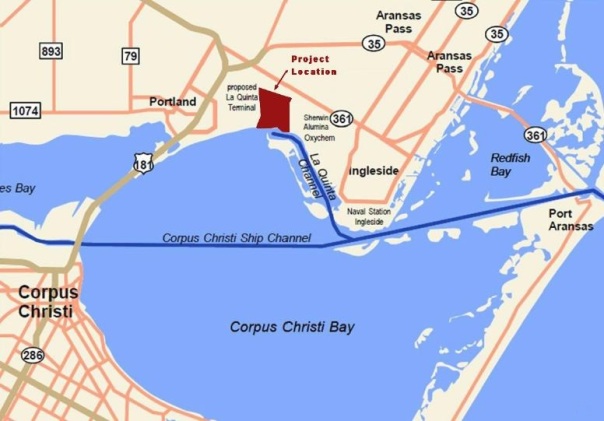Blog Archives
Corpus Christi, Texas: APGA Files Motion in Opposition to Cheniere LNG Export Application
APGA filed a motion to intervene and protest in response to the application by Cheniere Marketing, LLC to export approximately 2.1 billion cubic feet per day (Bcf/day) of LNG from the proposed Corpus Christi Liquefaction Project to any country that the United States does not have a Free Trade Agreement (FTA) with.
To date, 20 applications have been filed at the Department of Energy (DOE) to export 28.67 Bcf/day of LNG to FTA countries. This equates to approximately 45 percent of our daily consumption. APGA members unanimously approved a resolution to oppose the export of LNG at the 2011 APGA Annual Conference.
In its filing APGA states that “proposed exports from Corpus Christi, Texas will increase domestic natural gas prices, burdening households and jeopardizing potential growth in the manufacturing sector, as well as the transition away from more environmentally damaging fossil fuels.” APGA’s comments also respond to a recently released DOE commissioned study on the macroeconomic impacts of LNG exports from the United States. Specifically, the comments state that although the study communicated that LNG exports will result in net economic benefits.
It also concluded that the higher the volume of LNG exports, the more domestic natural gas prices will rise. APGA’s filing concludes that “Cheniere’s proposal to export domestic LNG to non-FTA nations is inconsistent with the public interest because it will increase domestic natural gas and electricity prices to the detriment of all consumers, inhibit this nation’s ability to forge a path toward energy independence, and undermine sustained economic growth in key manufacturing sectors.”
USA: APGA Files Motion in Opposition to Cheniere LNG Export Application LNG World News.
Related articles
USA: Jordan Cove Submits Non-FTA LNG Export Application
Jordan Cove Energy Project on Friday told the U.S. Department of Energy that it is seeking long-term authorization to export LNG to any nation with which the United States does not have a Free Trade Agreement.
The U.S. Department of Energy granted in December a 30-year license for Jordan Cove Energy to export LNG to countries that hold free trade agreements with the United States.
Jordan Cove plans to construct and operate a liquefied natural gas (LNG) terminal on the north spit of Coos Bay to export LNG.
The LNG export terminal would include a berth for LNG carriers, cryogenic pipelines, four liquefaction trains, two LNG storage tanks, and a non-jurisdictional power plant.
The terminal would have the capacity to produce about six million metric tons of LNG per year, which is equivalent to the liquefaction of about 0.9 billion cubic feet per day of natural gas.
Related articles
- USA: Sierra Club Opposes Cove Point LNG Export Plans (mb50.wordpress.com)
- USA: Sempra Wins DOE Approval for Cameron LNG Export (mb50.wordpress.com)
- USA: Golden Pass LNG Plans Re-Exports (mb50.wordpress.com)
- USA: Cheniere CEO Sees Domestic Gas Prices at USD 2/MMBtu (mb50.wordpress.com)
- Canada: NEB Approves BC LNG Export Licence (mb50.wordpress.com)
- USA: Seventeen LNG Cargoes Re-Exported in Jan-Nov (mb50.wordpress.com)
- USA: Cheniere Urges FERC to Approve Sabine Pass Liquefaction Project (mb50.wordpress.com)





 Continents of the World
Continents of the World